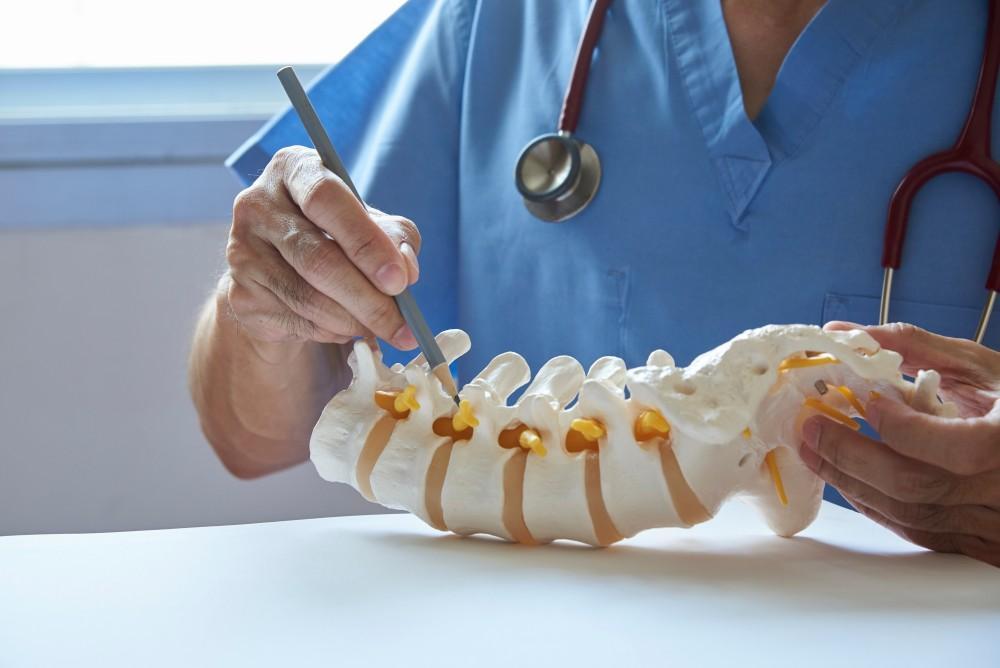
Spotting the Warning Signs of a Pinched Nerve

Pinched nerves cause pain in your neck (or back), but that’s not all. Pinched nerves affect the health and function of your nerves. Left untreated, a pinched nerve can contribute to permanent nerve damage. The good news is pinched nerves can be treated, and board-certified neurosurgeon Kamal Woods, MD, MBA, FAANS offers a variety of treatments for pinched nerves.
Sometimes, though, you might not realize that your pain is caused by a pinched nerve. Dr. Woods at Vertrae® offers this guide to help you spot the warning signs of a pinched nerve and the next steps you should take.
5 signs you have a pinched nerve
Radiculopathy — which is more often referred to as a pinched nerve — happens when a nerve root in your spinal column becomes pinched. Spinal stenosis, herniated discs, and bone spurs are three conditions that can cause nerves to be compressed. Pinched nerves can occur in the cervical spine (neck), lumbar spine (lower back), or thoracic spine (mid-back).
Pinched nerves produce a range of symptoms including:
1. Numbness
Nerve damage doesn’t always cause pain. Nerve damage can also cause numbness and/or decreased sensation. Depending on which nerve in your spinal column is compressed, you might experience numbness in your hand or foot too.
2. Sharp pain
Pinched nerves cause discomfort, but the way you experience the discomfort can vary. You might feel sharp pains, achiness, or even a burning sensation. Pain doesn’t just develop at the site of your pinched nerve. The pain can radiate. For example, pinched nerves can cause pain in your neck, arms, backs, legs, and buttocks.
3. Paresthesia
You’ve probably experienced paresthesia at some point. Paresthesia refers to the pins and needles sensation if your hand or foot “falls asleep.” Paresthesia doesn’t just happen if you sit cross-legged for too long; it can be a sign of a pinched nerve.
4. Muscle weakness
Nerves can become compressed in your neck/shoulder, back, arm, elbow, and wrist. Pinched nerves can cause muscle weakness in the muscle where the nerve serves.
5. Stiff neck
If you have a pinched nerve in your cervical spine, you might also experience a stiff neck. Even though underlying conditions (like bone spurs) can cause pinched nerves, it’s also possible to pinch a nerve if you slept in an awkward position. If that’s the case, you might feel stiffness and muscle tenderness too.
What to do if you spot these warning signs
Sometimes pinched nerves can be treated with conservative methods and rest. For example, if sleeping in an awkward position caused a pinched nerve in your neck, you might feel better with rest, a hot compress, and improving your sleeping position.
However, if you have chronic pain, untreated pinched nerves can increase your risk of permanent nerve damage. Because of this, it’s a good idea to seek medical attention if you suspect you have a pinched nerve. Dr. Woods pinpoints the location (and the severity) of your pinched nerve before creating a treatment plan.
At Vertrae®, we provide both conservative and surgical treatments, including physical therapy, anti-inflammatory medication, steroid injections, and minimally invasive surgery.
Don’t brush off the symptoms of pinched nerves. Relief is available. Call our Dayton or Springfield, Ohio office at 844-255-2225 or request an appointment online.
You Might Also Enjoy...


4 Benefits of Outpatient Spine Surgery

Am I a Candidate for Kyphoplasty?

Pulled Muscle vs. Pinched Nerve: What's the Difference?

4 Subtle Signs of Sciatica

